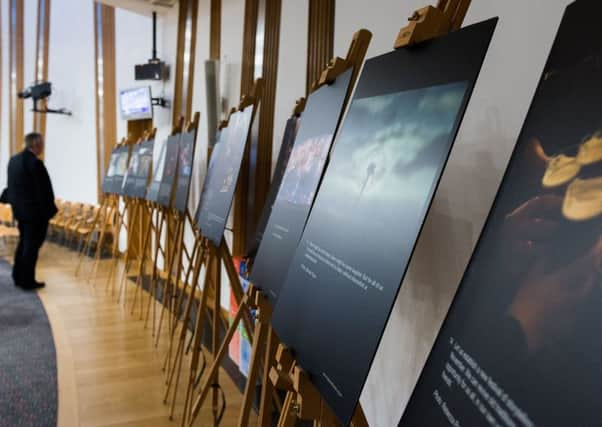Susan Lowes: It really would become us to prepare for death


It feels like there have been a lot of famous deaths recently. So many people’s heroes have died, as we’ve seen from the outpouring of feelings, memories and tributes widely reported in the media. Every one of the 54,000 deaths in Scotland each year is a loss. Yet why is it that we commonly choose to avoid talking and planning for it?
When Scottish Government launched its national conversation on the future of health and social care last June it wanted to encourage people to think about what really matters to them when thinking about the future, and what support they needed to lead healthier lives. This work aims to build on their 2020 vision that everyone is able to live longer healthier lives at home or in a homely setting.
Advertisement
Hide AdAdvertisement
Hide AdAnd that’s great, that’s what we should be doing. But it doesn’t help encourage us to think about what comes next.
When people die, especially from a terminal illness, such as famous figures Ronnie Corbett, Paul Daniels and David Bowie then we start reflecting on our own mortality. Terry Pratchett is a hero of mine, I had the privilege to see him speak in his last public appearance in Edinburgh in 2014. The progression of his Alzheimer’s disease was well known and it still affected me deeply when he died just over a year ago. It was reported that Terry died peacefully in his home, with his cat sleeping on his bed surrounded by his family. For many of us this would seem like a good death.
Too many people don’t get the support they need to die a good death. Our work at Marie Curie over the past year has been focused on changing the conversation about terminal illness. It’s becoming increasingly clear that there are gaps with how society and services deal with death, dying and bereavement.
Our research shows that most people want to be cared for and die at home. Yet data from the General Register Office for Scotland shows that over 50 per cent die in Scottish hospitals. We need to address this balance and make sure that palliative and end of life care is a priority in health and social care, enabling people to live and die at home, and saving pressure on already stretched acute services.
But we also need to do more. We need to think about what happens when we reach the end of life, to think about what we want for ourselves, the people we care for and our families. Importantly, we need to share that, whether it’s in a Will or funeral plan or having conversations with loved ones.
Good Life, Good Death, Good Grief is a Scottish alliance raising awareness of, and promoting community involvement in death, dying and bereavement. During Death Awareness Week (9-15 May 2016) the Marie Curie Hospice, Edinburgh is displaying a new photographic exhibition by the Scottish Partnership for Palliative Care and award-winning Glasgow-based photographer Colin Gray. The exhibition will pose that if it takes a village to raise a child, it also takes a village to support someone who is dying and their family. It’s a thought-provoking concept and we hope that the exhibition will highlight that as people’s health deteriorates, care and support comes in many guises, is needed by many different people.
The last Scottish Government recognised the need for a national public health campaign to tackle the taboos around death, dying and bereavement in the Health and Sport Committee’s report ‘We need to talk about palliative care’. As part of the Scottish Parliament election campaign, we’re asking political parties to commit to taking this forward under the next Scottish Government and ensure that palliative and end of life care is visible in health and social care strategies. As recommended by The Scottish Public Health Network’s report last month the next Scottish Government must acknowledge that death is inevitable and should be included as a normal part of its communications.
We’d also like the next public health strategy to include palliative and end of life care. It’s only through government and the public joining us in conversation about terminal illness, palliative care, dying and death that everyone can have the good death that we all want for ourselves. Whether that’s the peaceful death at home in our own bed or whatever a good death means to us. So while there may feel like too many deaths, and we can and should mourn every loss, we should embrace the opportunity we have to live, and die well.
• Susan Lowes is Marie Curie’s Policy & Public Affairs Manager in Scotland. Visit www.mariecurie.org.uk/change